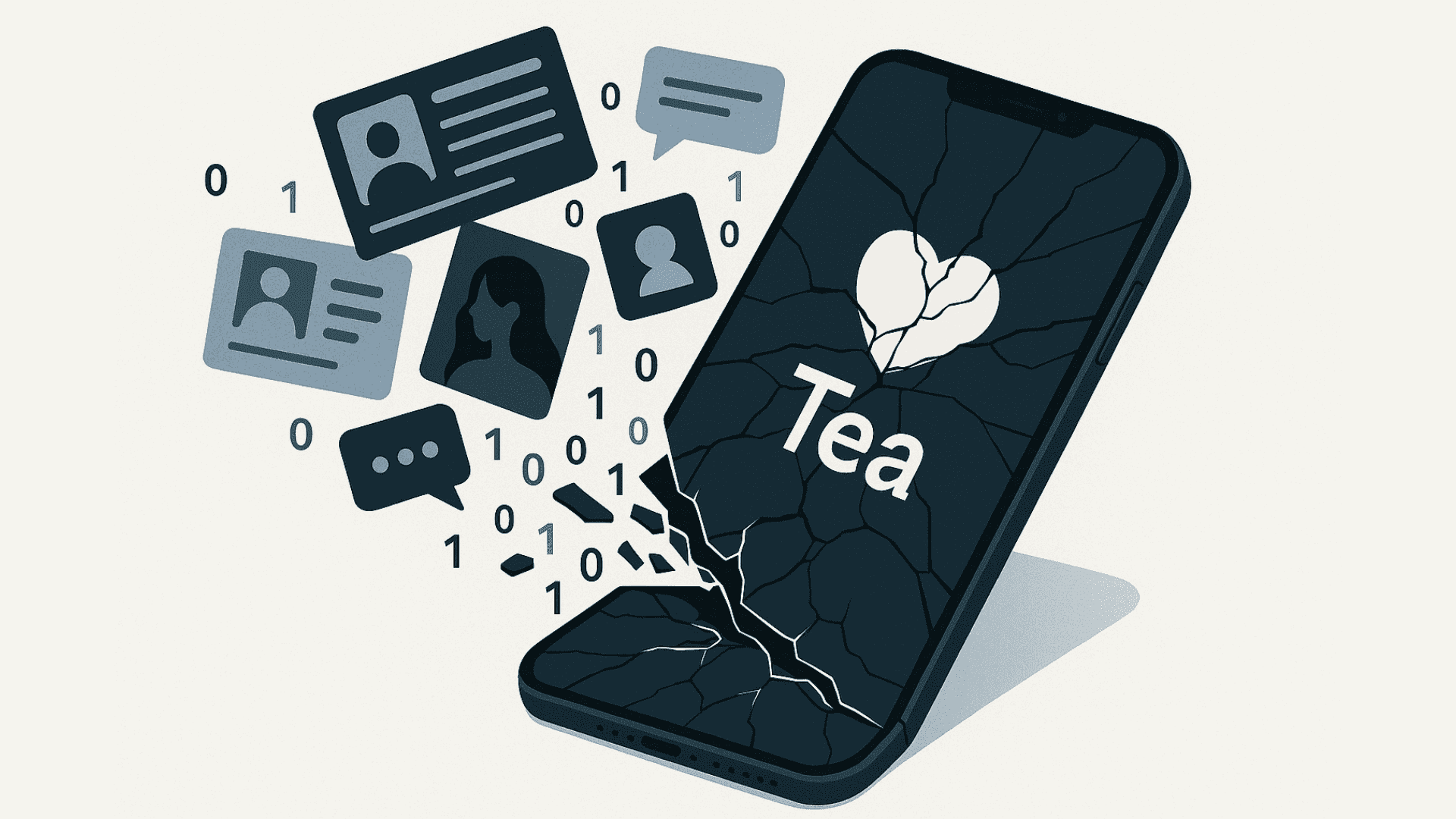Tea App Data Breach: A Major Security Failure in Women’s Safety Tech

In July 2025, Tea, a women-focused dating safety application, suffered a serious data breach that exposed sensitive user data including government ID’s, private messages and photos. The incident highlights major security lapses in applications claiming to protect vulnerable users.
What is the Tea App?
Tea is a mobile safety application launched in November 2022. It was created to help women safely navigate online dating. Key features included:
- Background checks on men
- ID verification
- Anonymous “green flag” or “red flag” dating reviews
The app gained popularity for offering a private, secure space for women to share experiences in a structured environment.
By mid-2025, Tea became one of the most downloaded iOS applications in the United States, trending heavily in regions like New York, Los Angeles, Austin, Chicago and San Francisco. Its rapid growth reflected a growing concern around women’s safety in online spaces.
What Happened?
In late July 2025, hackers breached Tea’s database exposing:
- 72,000+ verification images (selfies and government ID’s)
- Over 1 million private messages
- Sensitive topics including reproductive health, relationship abuse and infidelity
The data didn’t just leak, it was publicly posted on forums such as 4chan and X. One disturbing example was a site that was created which leaked selfies that were rated by strangers.
This wasn’t just a breach. It was a targeted humiliation campaign.
Why did the Breach Happen?
Security analysts say Tea’s infrastructure lacked basic protections. Key issues:
- User data from before February 2024 was stored in insecure locations
- Team claimed to “immediately delete” ID images, but evidence suggests otherwise
- No end-to-end encryption on private messages
- No two-factor authentication enforced during critical actions
Experts say Tea grew too fast, skipping standard security protocols used by more established applications.
Who Created Tea?
Sean Cook, a software engineer, founded Tea. His mission was noble, but critics argue:
- The company put growth over security
- Tea overpromised privacy without delivering strong backend safeguards
- Founder transparency post-breach was limited
What This Means for Online Dating & Safety Apps
The Tea hack sends a strong message to app developers and users alike:
- Security must be built-in from day one
- Applications focusing on safety carry extra responsibility
- Users should not trust vague privacy promises without verification
No application, however well-intentioned, can be considered secure without continuous investment in security protocols and independent audits.
Final Thoughts
This isn’t just a tech story, it’s about trust. A platform built to protect women ended up exposing them. As digital safety becomes more urgent than ever, app developers must ask: Are we truly protecting users or just promising to?
DSRPT’s Input
To secure your project from the start, integrate security into your development process by encrypting all sensitive data, enforcing strong authentication methods like two-factor authentication and limiting what you store to only what’s necessary.
Regularly test your system with automated security scans and external penetration tests and set up clear policies for data retention and deletion. Most importantly, treat security as an ongoing commitment, schedule independent audits, monitor for suspicious activity and have a well-rehearsed incident response plan so you’re prepared to act quickly if something goes wrong.
